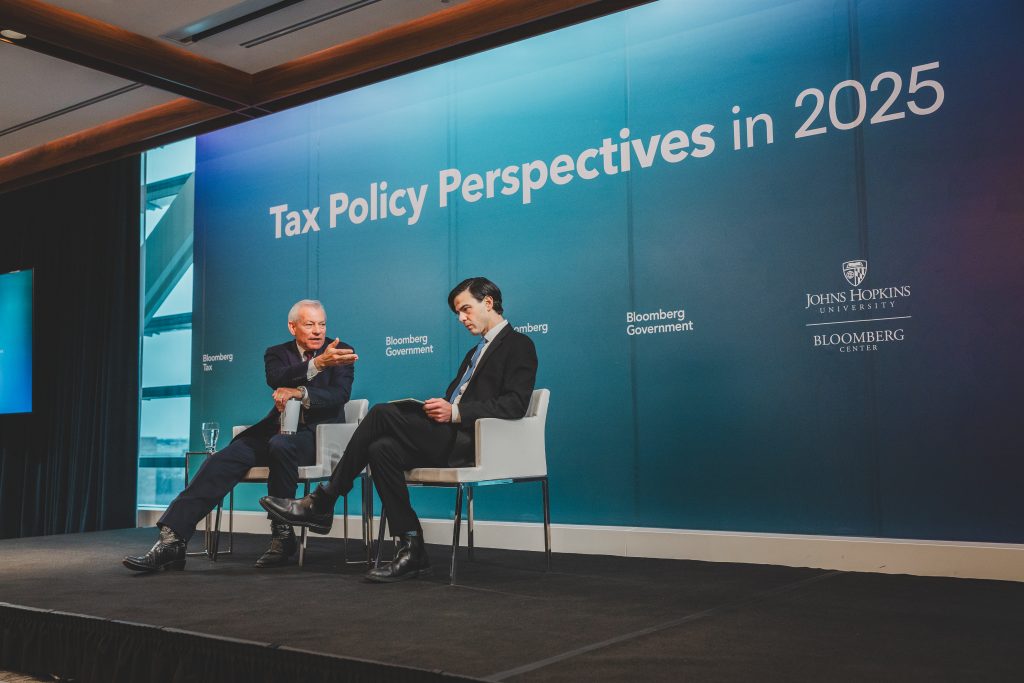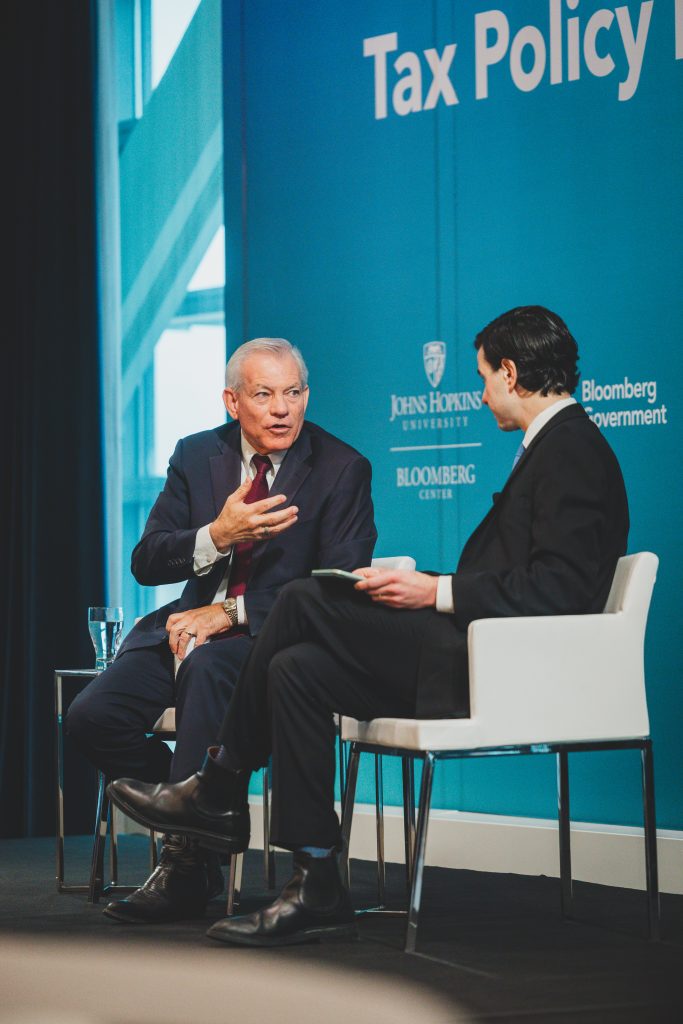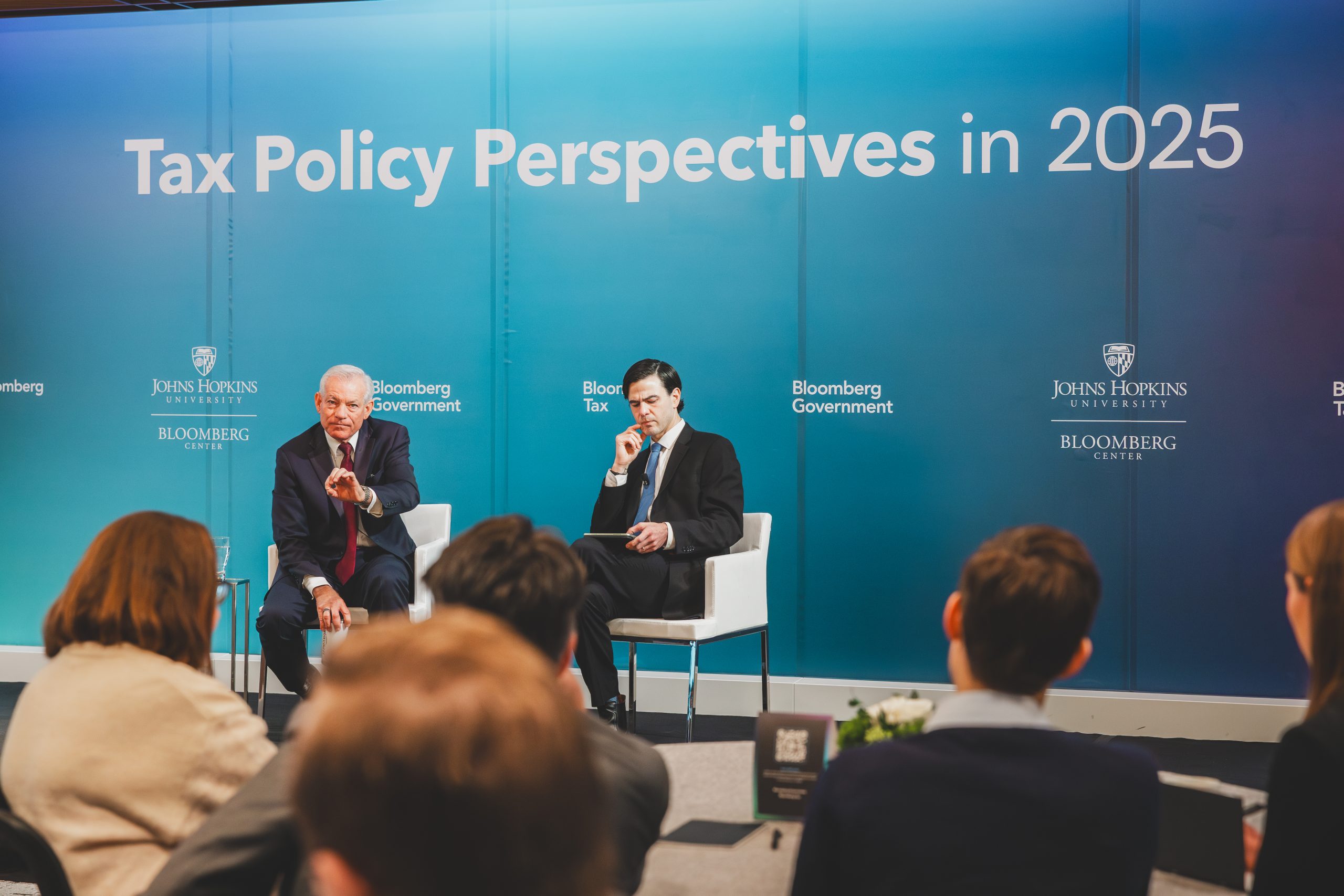- Arizona’s Schweikert says there are ‘no free options’ for deficit reduction
- Calls GOP leadership’s scoring plan ‘intellectually vacuous’
A senior House Ways and Means Committee member said he would oppose his party’s signature tax
bill this year if it is “debt-financed” and questioned senior party members’ proposed scoring that could mask its overall price tag.
Rep. David Schweikert (R-Ariz.), who chairs the tax-writing panel’s subcommittee on oversight,
warned against addressing expiring provisions of the 2017 tax law for families and businesses without addressing that bill’s impact on increasing debt and deficits.
“There’s no free options,” Schweikert said during a Bloomberg Government event Thursday. “We’re
going to have to do hard things.”
His remarks illustrate the challenges congressional Republicans face as they try to lock in a key
priority of the Trump administration and avoid a multi-trillion-dollar tax hike at the end of 2025.





Scoring Issues
Senate Republicans, including Finance Chair Mike Crapo (R-Idaho), want to calculate the costs using
a so-called current policy baseline. That theoretically would wave away the $4.6 trillion price tag
estimated by the Congressional Budget Office for renewing the 2017 tax law for 10 years.
That baseline assumes that “current policy” would always be extended, and therefore letting the law’s
provisions fall away would amount to a tax increase. The idea has found some support in the House, too.
But budget hawks and some independent scorekeepers say the move is an accounting gimmick, and
Schweikert called current policy baseline scoring “intellectually vacuous.”
Schweikert and others concerned over the ballooning debt have maintained that any reconciliation bill
should include deep cuts to avoid deficit spending.
Republicans are unlikely to curtail tax ambitions to address budget constraints but instead will look to
cut spending, Rohit Kumar, principal and co-leader of the PwC’s national tax services practice, said at
the same event Thursday. Even then, structural reform to entitlements would be a heavy political lift.
“All the focus is on tax and that’s only, at best, half the equation,” Kumar said. “And President Trump
ran to some degree on not touching Medicare, not touching Social Security.”
Lawmakers also will need to defend other popular but vulnerable tax credits. Even bipartisan energy
credits in Democrats’ so-called Inflation Reduction Act in 2022 could be on the chopping block.
Republican efforts to once again expand the child tax credit would need to be balanced against any
costs from those changes.
“There will be a lot of discussion about, and need to be some kind of resolution on, how to expand the
child tax credit,” Lisa Wolski, managing director at Washington Council Ernst & Young, said at the event.
At the same time, lawmakers are trying to juggle demands from Republicans in high-tax states seeking an increase to the federal deduction on state and local taxes.
“Every House Republican has a veto” in the narrowly divided chamber, said Douglas Holtz-Eakin,
president of the American Action Forum and former director of the Congressional Budget Office.
“Peace in the Middle East will be easier.”
The full article can be accessed here.
To contact the reporters on this story: Zach C. Cohen in Washington at zcohen@bloombergindustry.com; Chris Cioffi at ccioffi@bloombergindustry.com
© 2025 Bloomberg Industry Group, Inc. All Rights Reserved. Terms of Service
Back to News

